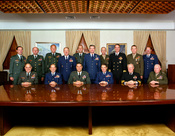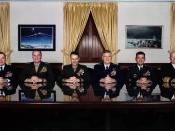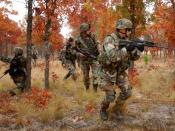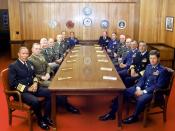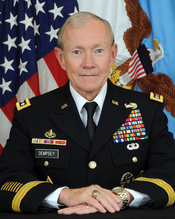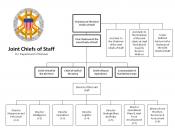The Ft. Bragg Hacker Espionage Trial In October of 1996 the Fayetteville Observer-Times started reporting on the pre trial in the case of Eric Jenott, a Fort Bragg, NC paratrooper accused of hacking U.S. Army systems and furnishing passwords to a citizen of communist china.
Many witnesses came forward to testify against Jennot that he apparently had various conversations about hacking into the Department of Defense computer system. Jenotts family also claimed that he only gave out information that was declassified to a Chinese man named Mr. Liu. Mr. Liu had previously left the country and refused to come back and testify on Jenotts behalf. Liu was a Chinese National who worked for a short period of time at Oak Ridge National Laboratory on a computer database system, and was a close friend of Jenotts.
Mr. Liu was in fact in much of trouble of his own. Investigators revealed that Jenott gave Liu password to enter the University of Washington computer system.
These passwords enabled him to enter the system and delete and change many important classified document and private information.
It has become know that Jenott recieved passwords online from contacts he had in the underworld of computer hackers. From a taped conversation with Jenott and his father, it was revealed that many of the passwords that he used to enter many of these secret computer systems were declassified. When a further investigation took place the court was made aware that the password were in fact public information. These passwords were published in the training books given by GTE to soldiers for home study.
There was a strange twist in the trial when the lead prosecutor on the case tried to commit suicide. Fred Arquilla attempted to slice his wrists to end his life. It is unclear weather or not the suicide was a result of the ongoing trial. The trail did in fact go on. Substantial evidence of over 600 computer diskettes and two hard drives, and a personal journal, there were large amounts of convicting evidence. Jenott was quoted in saying in his journal that he had been a Communist for about three years and that he wished that he could put America to shame. When all the fact accumulated it was know that Jenott Also hacked into top-secret Internet sites such as, Joint Chiefs of Staff, Secretary of the Army, Navy, and the Air Force. He had in fact created over 5 million dollars worth of damage before he was apprehended. After the trial was in full swing, it was becoming quiet clear that Jenott did not want to provide the Chinese with information, but hacked solely for the joy and fun of it. Many of his fellow peers were quoted as saying that they wish more soldiers were like Jenott.
Late Sunday, December 22 1997 Jenott was not found guilty of espionage against the United States. He was convicted of committing various computer crimes involving the damage of Government property. Jenott was sentenced to three years in prison and a big chicken diner, or "Bad Conduct discharge"ÃÂ.
